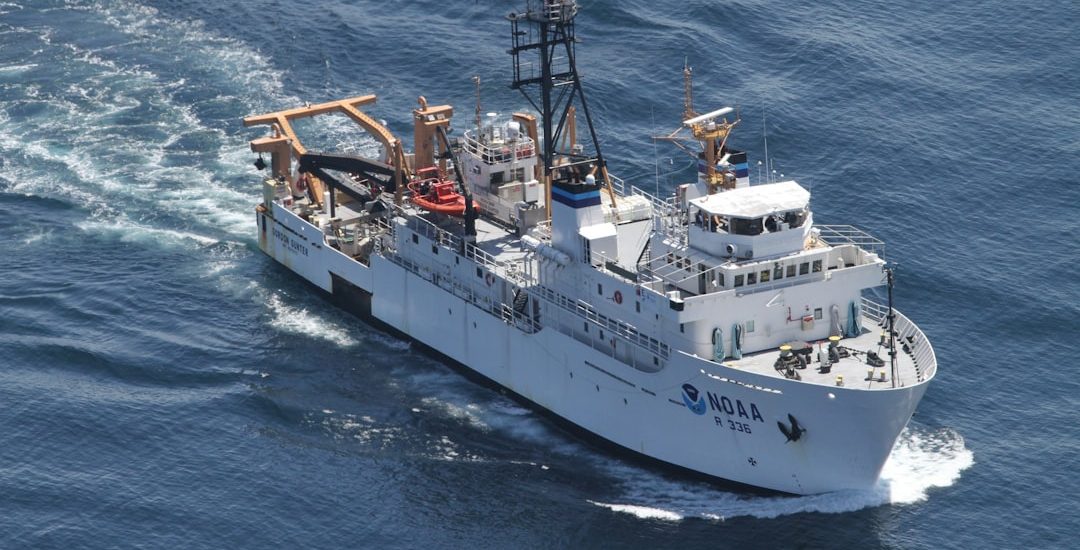Coral reefs, often referred to as the “rainforests of the sea,” are among the most diverse and vibrant ecosystems on the planet. These underwater structures, formed by colonies of tiny marine animals known as corals, provide habitat and sustenance for a myriad of marine species. Spanning over 284,300 square kilometers globally, coral reefs are not only crucial for marine biodiversity but also serve as vital resources for millions of people who depend on them for food, income, and coastal protection.
However, these intricate ecosystems are facing unprecedented threats due to climate change, which is altering ocean temperatures, acidity levels, and weather patterns. The delicate balance that sustains coral reefs is being disrupted, leading to alarming consequences that extend far beyond the ocean’s depths. As global temperatures continue to rise, the implications for coral reefs become increasingly dire.
The phenomenon of coral bleaching, a stress response triggered by elevated water temperatures, is becoming more frequent and severe. When corals experience stress, they expel the symbiotic algae (zooxanthellae) that provide them with color and essential nutrients. This not only leads to a stark loss of vibrancy but also compromises the corals’ ability to survive.
The ongoing degradation of these ecosystems is a clarion call for urgent action, as the health of coral reefs is intrinsically linked to the overall health of our oceans and the well-being of countless communities around the world.
Key Takeaways
- Coral reefs are highly vulnerable to the impacts of climate change, including rising sea temperatures and ocean acidification.
- Bleaching events, caused by stress from high temperatures, can lead to the decline of coral reefs and the loss of important marine biodiversity.
- The decline of coral reefs can have far-reaching impacts on marine ecosystems, including the loss of habitat for fish and other marine species.
- The economic and social consequences of coral reef decline can be significant, affecting industries such as tourism and fishing, as well as the livelihoods of coastal communities.
- Conservation efforts, such as marine protected areas and sustainable fishing practices, are crucial for the preservation of coral reefs and the marine life they support.
Bleaching and Decline of Coral Reefs
Coral bleaching is a phenomenon that has garnered significant attention in recent years, as it serves as a visible indicator of the broader impacts of climate change on marine ecosystems. When water temperatures rise even slightly above the normal range, corals become stressed and expel their symbiotic algae. This process not only strips corals of their vibrant colors but also deprives them of the essential nutrients they require for growth and reproduction.
The consequences can be devastating; bleached corals are more susceptible to disease, have reduced reproductive success, and are less able to recover from environmental stressors. As a result, widespread bleaching events have led to significant declines in coral cover across the globe, with some regions experiencing losses of up to 90% in certain species. The decline of coral reefs is not merely an ecological concern; it represents a profound loss of biodiversity and resilience in marine environments.
As corals die off, the complex structures they create begin to erode, leading to habitat loss for countless marine organisms that rely on these reefs for shelter and food. The cascading effects of this decline can be felt throughout entire marine ecosystems, disrupting food webs and diminishing the abundance of fish populations. Furthermore, the loss of coral reefs poses a significant threat to coastal communities that depend on these ecosystems for protection against storms and erosion.
The urgency of addressing coral bleaching and its underlying causes cannot be overstated, as the survival of these vital ecosystems hangs in the balance.
Impact on Marine Biodiversity

The impact of coral reef degradation extends far beyond the immediate loss of coral species; it reverberates throughout entire marine ecosystems, leading to a decline in biodiversity that can have far-reaching consequences. Coral reefs are home to approximately 25% of all marine species, despite covering only about 1% of the ocean floor. This remarkable biodiversity is a result of the complex interactions between corals and various marine organisms, including fish, invertebrates, and algae.
As coral reefs decline due to bleaching and other stressors, the intricate relationships that sustain this biodiversity begin to unravel. Fish populations that rely on healthy reefs for breeding and feeding face significant declines, leading to imbalances in marine ecosystems that can take decades or even centuries to recover. Moreover, the loss of biodiversity within coral reef systems has implications that extend beyond ecological health; it also affects human communities that rely on these resources for their livelihoods.
Many coastal populations depend on fishing and tourism related to healthy coral reefs for their economic stability. As fish populations dwindle due to habitat loss, local fisheries suffer, leading to food insecurity and economic hardship for communities that have relied on these resources for generations. The decline in biodiversity also diminishes the resilience of marine ecosystems to adapt to changing environmental conditions, making them more vulnerable to future stressors such as ocean acidification and overfishing.
The interconnectedness of coral reefs and marine biodiversity underscores the urgent need for comprehensive conservation strategies that address both ecological health and human well-being.
Economic and Social Consequences
| Metrics | Data |
|---|---|
| GDP Growth Rate | 3.2% |
| Unemployment Rate | 5.5% |
| Income Inequality | Gini coefficient of 0.42 |
| Poverty Rate | 12.3% |
The economic ramifications of coral reef degradation are profound and multifaceted, affecting not only local communities but also global markets. Coral reefs contribute an estimated $375 billion annually through fisheries, tourism, and coastal protection services. In many developing nations, particularly those in tropical regions where coral reefs are abundant, these ecosystems serve as a cornerstone for local economies.
The decline of coral reefs due to climate change threatens not only the livelihoods of fishermen but also the tourism industry that relies on vibrant underwater landscapes to attract visitors. As coral reefs deteriorate, so too does the allure they hold for divers and snorkelers seeking to experience their beauty firsthand. This decline can lead to significant economic losses for communities that depend on tourism revenue.
Socially, the degradation of coral reefs exacerbates existing inequalities and vulnerabilities within coastal communities. Many people living in these areas rely directly on healthy reefs for their sustenance and income; when these ecosystems falter, it disproportionately affects those who are already marginalized or economically disadvantaged. The loss of fish stocks can lead to increased competition among local fishers, driving some into poverty while others may resort to unsustainable fishing practices in a desperate attempt to make ends meet.
Furthermore, as coastal protection diminishes due to reef degradation, communities become more susceptible to natural disasters such as hurricanes and tsunamis. The social fabric of these communities is at risk as they grapple with economic instability and increased vulnerability to climate-related events. Addressing these economic and social consequences requires a holistic approach that prioritizes both environmental conservation and community resilience.
Conservation Efforts and Solutions
In light of the alarming decline of coral reefs worldwide, numerous conservation efforts have emerged aimed at mitigating the impacts of climate change and promoting reef resilience. One promising approach involves establishing marine protected areas (MPAs), which restrict human activities such as fishing and coastal development in designated regions. By creating safe havens for marine life, MPAs can help restore degraded habitats and promote biodiversity recovery.
Additionally, initiatives focused on restoring damaged reefs through coral gardening—where fragments of healthy corals are cultivated in nurseries before being transplanted back onto degraded reefs—have shown promise in enhancing reef resilience against climate stressors. Moreover, raising awareness about the importance of coral reefs among local communities is crucial for fostering stewardship and sustainable practices. Education programs that emphasize the ecological significance of these ecosystems can empower individuals to take action in their own communities.
Collaborative efforts between governments, non-governmental organizations (NGOs), and local stakeholders are essential for developing effective management strategies that balance conservation with economic needs. Innovative solutions such as eco-tourism initiatives can provide alternative income sources while promoting awareness about reef conservation. By integrating scientific research with community engagement, we can create a comprehensive framework for protecting coral reefs that addresses both environmental sustainability and social equity.
Future Projections and Predictions

The Uncertain Future of Coral Reefs
The future of coral reefs remains uncertain as climate change continues to pose significant challenges. Projections indicate that if current trends persist—particularly regarding greenhouse gas emissions—coral reefs could face catastrophic declines by mid-century. Studies suggest that if global temperatures rise by 1.5 degrees Celsius above pre-industrial levels—a threshold we are perilously close to—coral bleaching events will become increasingly frequent and severe.
The Consequences of Inaction
This could lead to widespread mortality among coral species, fundamentally altering marine ecosystems and diminishing biodiversity on an unprecedented scale. The loss of coral reefs would have far-reaching consequences for the health of our oceans and the many species that depend on them.
A Path Forward for Coral Reef Conservation
However, there is still hope for coral reefs if concerted global efforts are made to mitigate climate change and promote sustainable practices. Advances in scientific research offer potential solutions such as selective breeding programs aimed at enhancing coral resilience or developing innovative technologies for monitoring reef health in real-time. International agreements like the Paris Agreement provide a framework for countries to commit to reducing carbon emissions and limiting global warming.
Conclusion and Call to Action
In conclusion, the plight of coral reefs serves as a poignant reminder of the interconnectedness between human activities and environmental health. As we witness the alarming decline of these vital ecosystems due to climate change, it becomes increasingly clear that urgent action is needed at all levels—local, national, and global—to safeguard their future. The economic implications alone underscore the necessity for immediate intervention; however, it is equally important to recognize the intrinsic value of biodiversity and ecosystem health that coral reefs represent.
We must act decisively by supporting conservation initiatives, advocating for sustainable practices in our communities, and holding policymakers accountable for addressing climate change comprehensively. Each individual has a role to play in this collective effort—whether through reducing carbon footprints or participating in local conservation projects aimed at protecting marine environments. By fostering a culture of stewardship towards our oceans and recognizing the importance of coral reefs not just as resources but as irreplaceable ecosystems that sustain life on Earth, we can work together towards a more sustainable future where both people and nature thrive harmoniously.
If you are interested in exploring more about the latest advancements in scientific research, I recommend reading an article from the Virtual Public Health Library. The article provides insightful analysis and discussion on current trends and innovations in the field. You can access the article directly by visiting this link. It’s a great resource for anyone looking to stay updated with the cutting-edge developments in science and health-related topics.
FAQs
What is a scientific journal?
A scientific journal is a periodical publication that presents original research and review articles in a specific academic discipline. It serves as a platform for researchers to share their findings with the scientific community.
What is the purpose of a scientific journal?
The purpose of a scientific journal is to disseminate new research findings, provide a platform for scholarly communication, and facilitate the exchange of ideas within the scientific community. It also serves as a record of scientific progress and a source of reference for future research.
How are articles in a scientific journal reviewed?
Articles submitted to a scientific journal typically undergo a peer review process, where they are evaluated by experts in the field for their quality, originality, and relevance. The peer review process helps ensure the credibility and validity of the research presented in the journal.
What are the different types of articles found in a scientific journal?
Scientific journals typically publish original research articles, review articles, case studies, and editorials. Original research articles present new findings from research studies, while review articles provide a comprehensive overview of a specific topic based on existing literature.
How are scientific journals different from popular magazines?
Scientific journals are distinguished from popular magazines by their focus on academic research and scholarly content. They prioritize original research, adhere to rigorous peer review processes, and are aimed at a specialized audience of researchers and academics, whereas popular magazines cater to a general audience and often feature non-scholarly content.





